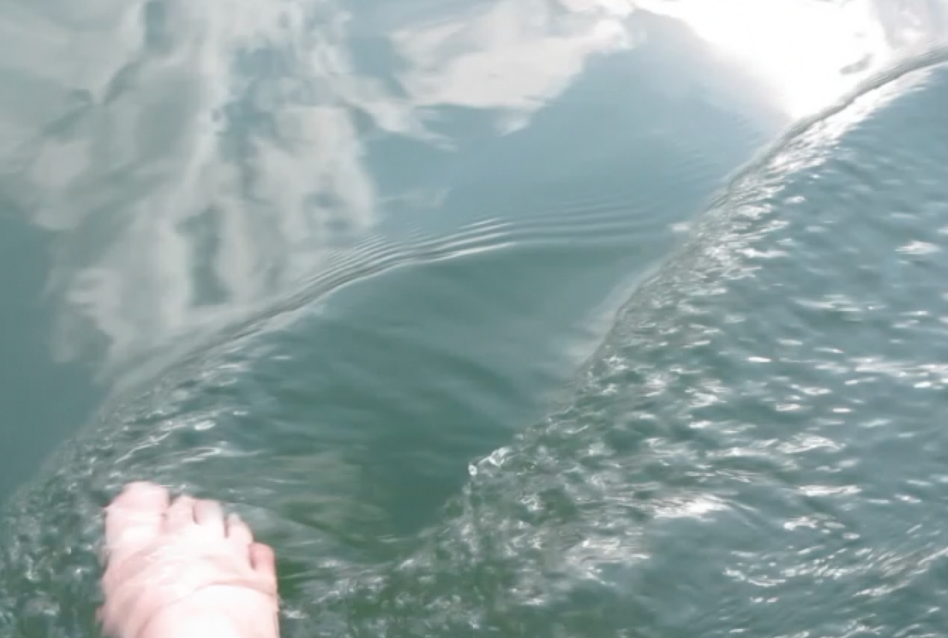
Wave train
When you look at waves, do you sometimes notice the train of smaller waves being pushed forward by the “main” wave? That has always fascinated me. Kind of like in the center of this picture:
When we were sailing in Ratzeburg earlier this year, one day there were hardly any wind waves on the lake, so putting a foot in the water from a sailing boat resulted in exactly the phenomenon that had puzzled me for so long.
In the movie below you see it “occurring naturally” and then afterwards “created” like in the picture above. I’m pretty sure it’s the “group velocity is only half the phase velocity” thing, with small waves passing forwards through the group and vanishing, only to be replaced by waves coming from the back of the group. Is this what is happening here? Anyone?

Mirjam says:
Thanks, Gary! That is super interesting and does make a lot more sense! I guess I never realized that capillary waves could have long wave crests, I always thought of them as those tiny ripples with short crests. This is opening up a whole new world of wave fun for me, thank you! :-) Any chance you might be interesting in writing a guest post here to tell us more about capillary waves?
Gary Jacobson says:
Those little waves you see in front of the main wave are called capillary waves. Unlike most waves they are not restored (pulled back to level) by gravity. They are restored mostly by surface tension – the phenomenon by which a liquid will tend to form a shape with the minimum possible surface area relative to the disturbing force which is usually wind, but in this case another wave “pushing” on the water in front of it. Think of them as water wrinkles – kind of like pushing on one end of a throw rug. Capillary waves have many interesting properties, one of which is that they are subject to reverse dispersion, meaning that longer capillary waves travel slower than shorter ones. If you look carefully at the little waves in your photo you can see they become more closely spaced the further from your foot they are. You are not looking at the “group velocity is half the phase velocity” thing. That happens due to normal dispersion where faster longer waves outrun slower shorter waves.